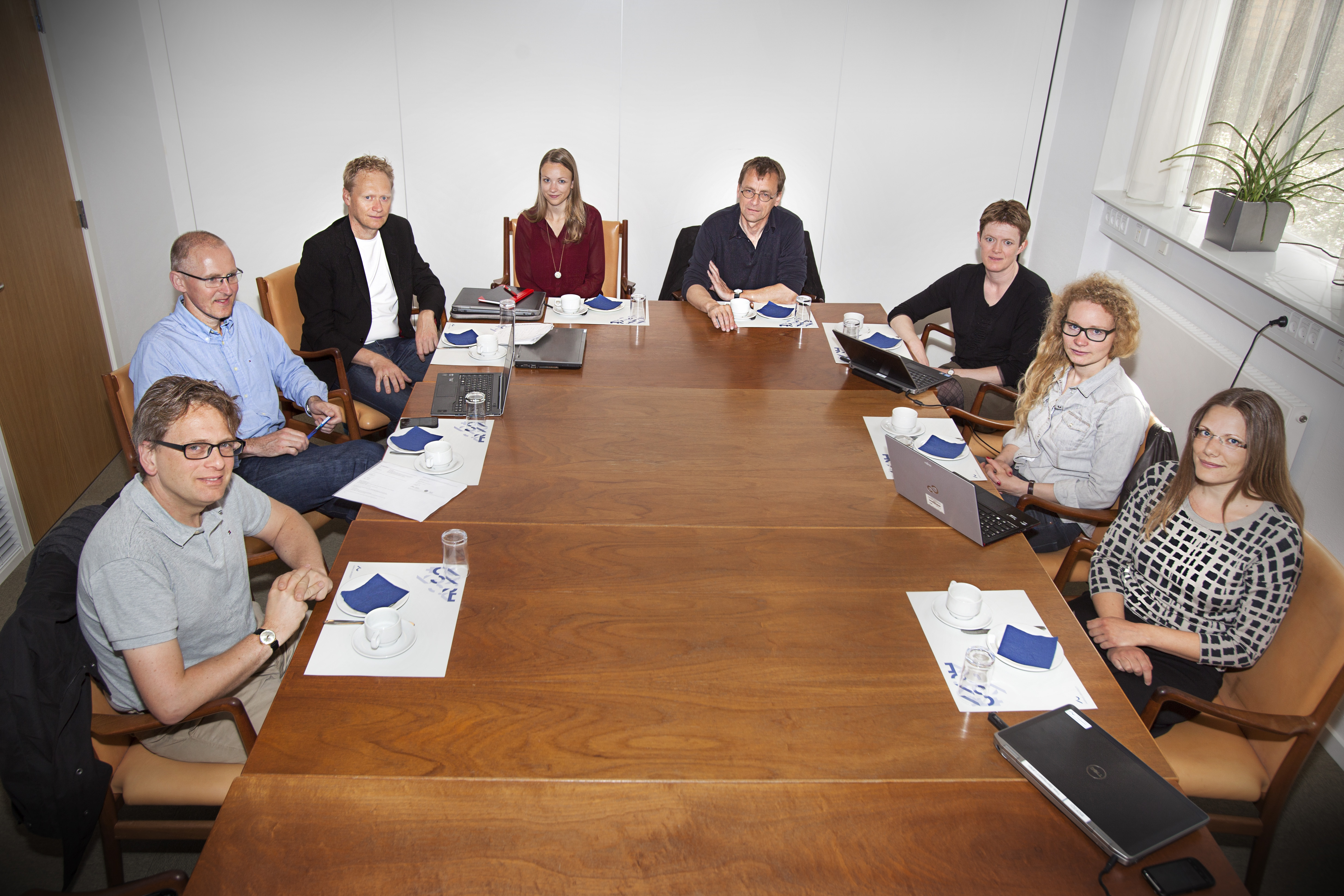<strong>The expert group has its diagnosis ready:</strong>
<br/>Centralisation and standardisation have gone too far at Aarhus University.


The morning sun shines through the window of Torben M. Andersen's office at the Department of Economics and Business shortly before the expert group completes its eagerly awaited report on the organisational and administrative problems at AU, which the senior management team has instructed the group to identify.
The expert group has only had about three months to analyse the problems, and judging from Torben M. Andersen’s pallor, he has not spent much time sitting in a deckchair with his feet up during the spring months - which is probably also the case for the four men and one woman who comprise the rest of the group (plus the secretariat).
Structural problems
The expert group's analysis has resulted in an overall diagnosis - that there are structural problems at AU. The professor sums it up like this:
"Of course there have been some teething problems and some massive changes that take time. Mistakes have been made during the process, but having said that, there is something wrong structurally at AU. That means there are some fundamental aspects that the management ought to look into and that isn’t going to be an easy task as there is no a magic wand to make everything fantastic."
Torben M Andersen continues:
"Using a metaphor, I’d say that it’s obvious that we have come too far over on one side of the road."
And that side of the road is centralisation as a result of the reorganisation?
"Yes, it is centralisation and standardisation. If we hypothetically assumed that we could carry out a search in all the material that has been said and written about our analysis of the problem, then they would be the two words with the most hits."
Expert group has a diagnosis
The expert group had the task of making a diagnosis, and using the report to discuss the most significant problems identified via its extensive analysis.
Comments from the analysis panel
The analysis panel made up of staff and student representatives will receive the report on Monday 2 June and will then read and comment on it before forwarding it to the senior management team on Wednesday 16 June.
The senior management team decides the cure
After receiving the commented report, the senior management team will confer on the question of how strong the medicine should be to cure the organisationally-challenged 85-year-old AU patient. The senior management team's cure will most likely be made available for consultation among staff and students just after the summer holidays.
Facts
Find links to the report (in Danish, though with a brief English summary) on the front page of omnibus.au.dk from Monday 2 June after 15:00.
The many comments that staff and students have contributed to the analysis will also be published within the next couple of weeks. The expert group has announced that the comments will not be published concurrently with the report because the group needs time to ensure that no one is mentioned by name, and that specific elements of the comments cannot be used to identify people.
Translated by Peter Lambourne

